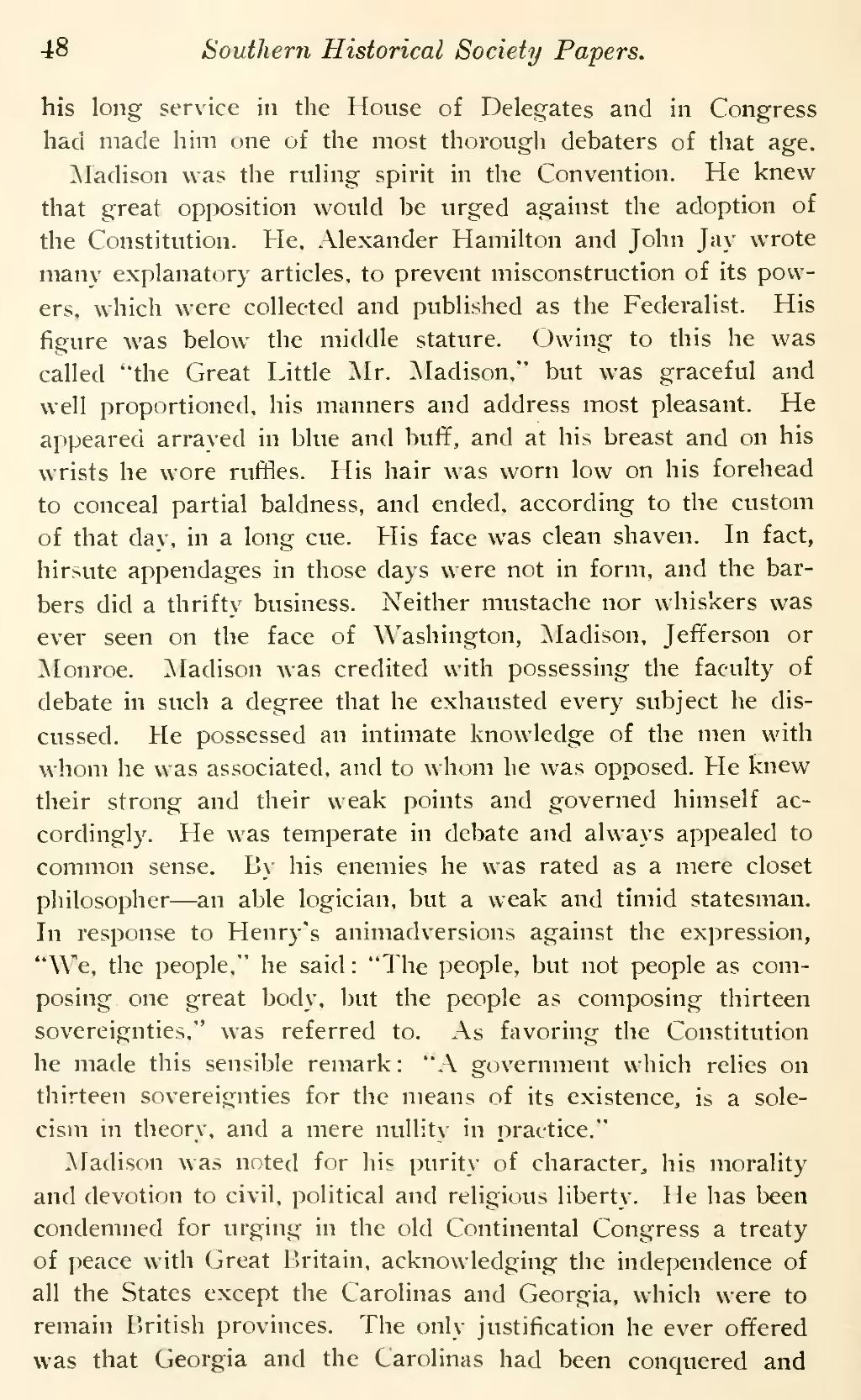his long service in the House of Delegates and in Congress had made him one of the most thorough debaters of that age.
Madison was the ruling spirit in the Convention. He knew that great opposition would be urged against the adoption of the Constitution. He, Alexander Hamilton and John Jay wrote many explanatory articles, to prevent misconstruction of its powers, which were collected and published as the Federalist. His figure was below the middle stature. Owing to this he was called "the Great Little Mr. Madison," but was graceful and well proportioned, his manners and address most pleasant. He appeared arrayed in blue and buff, and at his breast and on his wrists he wore ruffles. His hair was worn low on his forehead to conceal partial baldness, and ended, according to the custom of that day, in a long cue. His face was clean shaven. In fact, hirsute appendages in those days were not in form, and the barbers did a thrifty business. Neither mustache nor whiskers was ever seen on the face of Washington, Madison, Jefferson or Monroe. Madison was credited with possessing the faculty of debate in such a degree that he exhausted every subject he discussed. He possessed an intimate knowledge of the men with whom he was associated, and to whom he was opposed. He knew their strong and their weak points and governed himself accordingly. He was temperate in debate and always appealed to common sense. By his enemies he was rated as a mere closet philosopher – an able logician, but a weak and timid statesman. In response to Henry's animadversions against the expression, "We, the people," he said: "The people, but not people as composing one great body, but the people as composing thirteen sovereignties," was referred to. As favoring the Constitution he made this sensible remark: "A government which relies on thirteen sovereignties for the means of its existence, is a solecism in theory, and a mere nullity in practice."
Madison was noted for his purity of character, his morality and devotion to civil, political and religious liberty. He has been condemned for urging in the old Continental Congress a treaty of peace with Great Britain, acknowledging the independence of all the States except the Carolinas and Georgia, which were to remain British provinces. The only justification he ever offered was that Georgia and the Carolinas had been conquered and

